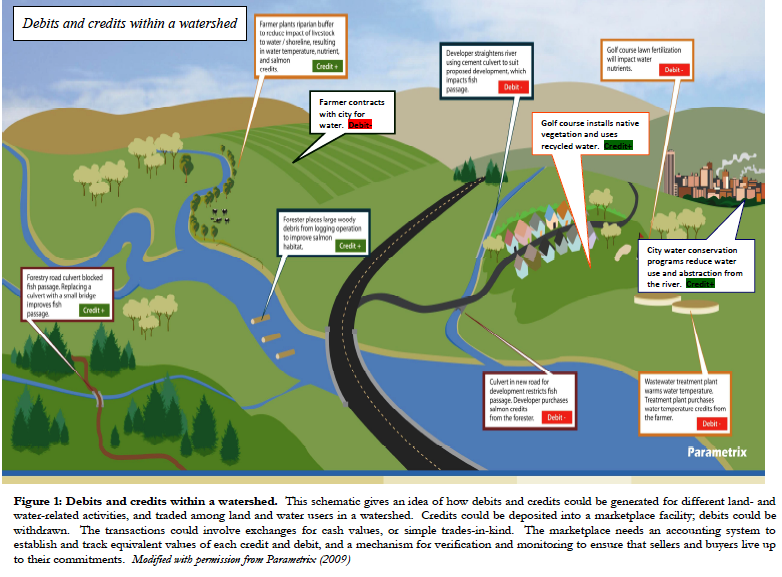WE hope citizens step up to the plate and watch this like hawks. How? There's information at the tail-end of this post.
The Excavator raised alerts about the NRM in August of last year and then again in October. Although we narrowly escaped a county opt-in to the Ruckelshaus process that had the NRM buried seamlessly within, there was never much question that the "marketplace" proponents would continue to beat on their missionary drum.
Until now the "Natural Resources Marketplace Working Group" met well beyond the scrutiny of the public. Now the rogues gallery of control obsessives led by city-living Farm Friends will reconvene quickly. They've posted a new official "crew," but don't be fooled. Task 1.7 of the implementation plan calls for "Facilitation of and participation in the RC [review committee], discussions with existing working groups, committees, and organizations on regular basis throughout the Task period where progress is discussed and stakeholder input is received (24 additional contacts and est. 20 meetings)." As happens so often, advocates and cherry-picked proponents will pave our world with more policy and regulation. This time they're taking the game to a whole new level.
Government management of persons through the use of their private property is all the rage in the planning-ecology universe. The NRM report (Page 20 of the PDF is much easier to see) illustrates the kind of command and control debit-and-credit utopian world this group envisions:
OECD RELEASES "ENVIRONMENTAL OUTLOOK TO 2050: THE CONSEQUENCES OF INACTION"
Earlier this month, the Organization for Economic Co-operation and Development (OECD) released an analysis entitled, "The OECD Environmental Outlook to 2050" which poses the question "What will the next four decades bring?" Based on joint modeling by the OECD and the Netherlands Environmental Assessment Agency (PBL), it looks forward to the year 2050 to predict what demographic and economic trends might mean for the environment if the world does not adopt more ambitious green policies. It also looks at what policies could change that picture for the better. The analysis focuses on four areas: climate change, biodiversity, freshwater and health impacts of pollution.
The report projects that despite the recent recession, the global economy could nearly quadruple by 2050. Rising living standards will be accompanied by ever growing demands for energy, food and natural resources, and more pollution. The costs of inaction could be colossal, both in economic and human terms. Without new policies, the report suggests that:
The report concludes that these projections highlight the urgent need for new thinking. Failing that, the erosion of the world's environmental capital will increase the risk of irreversible changes that could jeopardize two centuries of rising living standards. Well-designed policies to tackle environmental problems can also help to address other environmental challenges, and contribute to growth and development. Tackling local air pollution contributes not only to cutting greenhouse gas (GHG) emissions but also to reducing the economic burden of chronic and costly health problems. Moreover, climate policies help protect biodiversity, for example by reducing emissions from deforestation.
To avert the future painted by the "Environmental Outlook to 2050,"the report recommends a cocktail of policy solutions: using environmental taxes and emissions trading schemes to make pollution more costly than greener alternatives; valuing and pricing natural assets and ecosystem services like clean air, water and biodiversity for their true worth; removing environmentally harmful subsidies to fossil fuels or wasteful irrigation schemes; and, encouraging green innovation by making polluting production and consumption modes more expensive while providing public support for basic research and development (R&D).
Read the key facts and figures from the "Environmental Outlook to 2050" here. The report itself is available here.
Worth fighting? WE report, you decide - but decide soon. This is upon us. The first step would be getting your name or group added to the "interested party" list at Planning - probably by e-mailing Samya Lutz: [email protected]


 RSS Feed
RSS Feed
